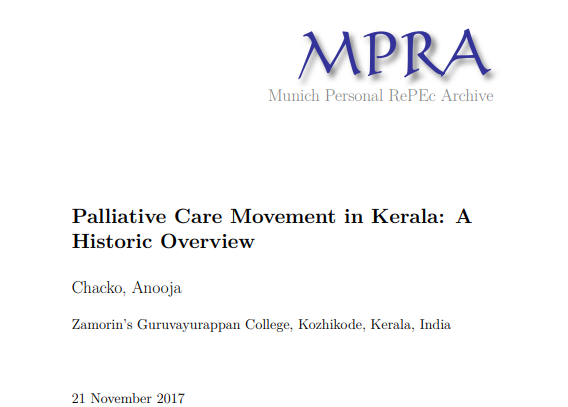“Small small interventions, big big roles”-a qualitative study of patient, care-giver and health-care worker experiences of a palliative care programme in Kerala, India
The Manjeri Pain and Palliative Care Unit in Malappuram, Kerala, stands as a pioneering model in community-based palliative care. Established in 1997, it has grown into a robust program offering holistic, home-based care to patients with chronic and terminal illnesses. This qualitative study highlights the interdependent roles of doctors, nurses, and volunteers in delivering care, emphasizing the program's foundation on community involvement and volunteerism. The program addresses not only medical needs but also psychosocial, financial, and emotional challenges faced by patients and their caregivers. With over 500 patients currently enrolled, the unit demonstrates the efficacy of localized healthcare networks supported by neighborhood participation. Despite challenges such as resource constraints and societal misconceptions about palliative care, the Manjeri initiative underscores the transformative impact of empowering local communities to sustain healthcare programs. This model serves as an exemplar for resource-limited settings globally, showcasing the power of collective effort in improving end-of-life care.




Comments
Post a Comment